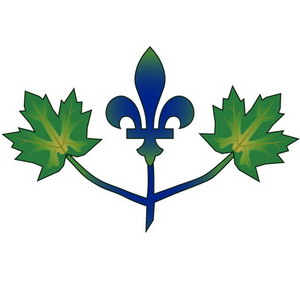Canadian Political Parties - Lecture #4 - The UN
 •
by
•
by Sperry
😉

Happy Saturday, Canada!
This article is the fourth lecture in a series about Canadian political parties. If you would like to read the previous article, please click here.
Our third party is by far the most unique in Canada – the Union Nationale. Unlike every other major political party, the UN’s chief focus is neither Congress nor the Presidency. Instead, the party’s 275 members make it their goal to strengthen the “Francophone Nation” in Canada. Despite their rich platform and stable membership, the UN is actually one of Canada’s youngest political parties. At only 8 months old, the UN is very fresh to the Canadian political stage.
What’s happened to the UN since go-time?
As with almost every party in Canada, the UN was formed under a different name. But, like the DAL and very unlike the CPF, the UN’s founder party was insignificant. Originally known as the Illuminati Party, the group’s first Party President rebranded the IP within 2 weeks. Since then, 7 people have headed the UN, and only current-leader Samuel de Champlain has managed to sit in office for more than a month. Here’s the breakdown:

(Click to make me big!)
Has the UN changed much since November?
In function, but not in direction. The UN of 2009 was small and heavily outnumbered, and their desire to foster the Francophone Nation was hindered by an English-dominated media. The turning point came on New Year’s Eve 2009. UN members published a lengthy Political Platform that emphasized just how unique the party’s goals were. The party broke 100 members soon after, and by February they entered the Top 5. Since then, the UN has climbed steadily, and now sits in a comfortable 2nd place.
You might think the UN is unstable because of its quick turnover for leaders. Take a look at the DAL’s first 8 months. They’re actually quite similar – each month, both parties introduced new leaders with high election rates until they found more lasting Presidents. Despite their many leaders, the UNs core body of members continues to push for language equality in Canada. And there’s no doubt that they’ve been successful – the “Fair Use” Policy is common practice in Canada, and articles published in French don’t suffer cries for translation as they did in months past.
But what about the hard numbers? How does the UN measure up?
There’s no doubt that the UN continue to make gains in their platform goals. But what about the highly-coveted congress elections? Here’s how they’ve done since they hit the Top 5:

Compared to its Top 5 counterparts, the UN is not a major congress contender. Their all-time high, 20%, is barely above the DAL & CPF’s worst showings. Apart from not focusing on congress, this is because the UN membership is strongly based in Quebec. Since most UNers live in one region, the bulk of their community can only vote for 2 candidates each month. To Champlain’s credit, the UN have done slightly better in congress since he took office. Perhaps this will give the UN the drive to boost their showing next month.
Is the UN a place to call home?
It depends on what you’re looking for. While the UN is not the largest, most successful, or most influential party, their unique approach is one that isn’t offered by the rest of the Top 5. Beyond their obvious goals for the Francophone Nation, the UN also places national goodwill ahead of their own party’s successes. So where does that put them on the political map? Once again, I asked 3 leading party members to take a political test to see where they stood. Here’s how they rank:

Not surprisingly, the UN are very close to their real-life counterpart, the Bloc Quebecois. Economically they nearly match the CPF, but their Social stance makes them the first party to fall above centre.
Whether you’re looking to create language equality or just foster goodwill and collaboration, the UN is complicated and deserves more attention than a single article can commit. If you want to learn more about them, check out their forums or get in touch with them at #UnionNationale on the IRC. I’m sure they’d love to chat with you.
Next week: Old and Powerful, it’s the CEP!


Comments
REPOST
SPERRY FAILS